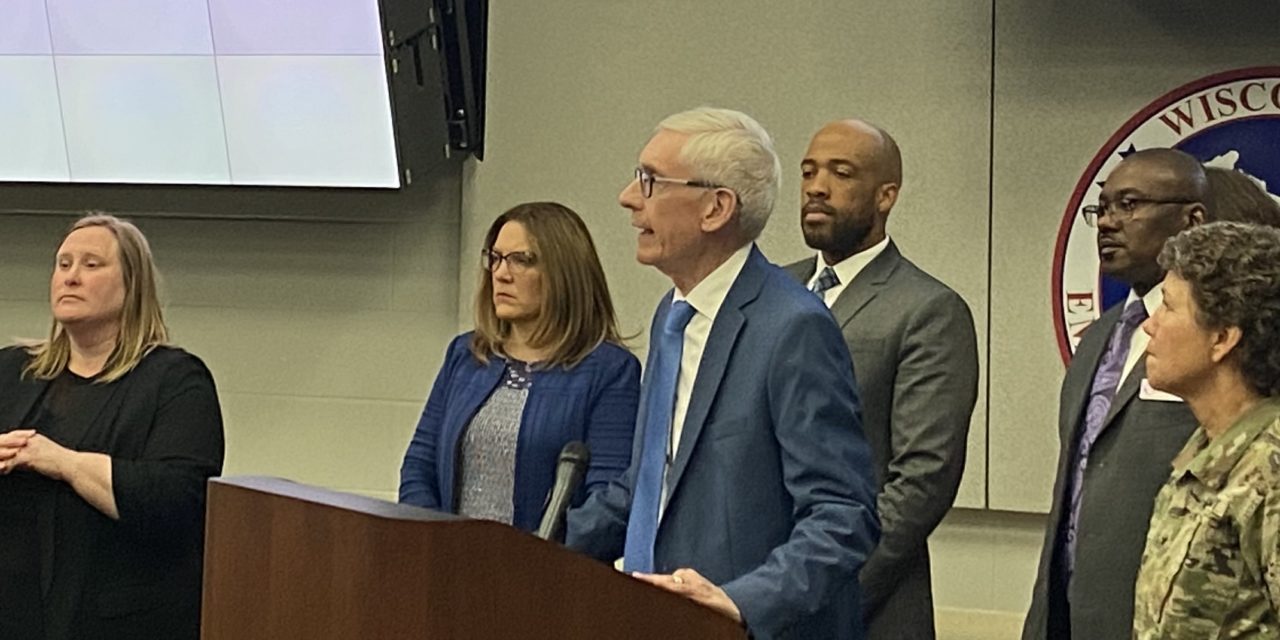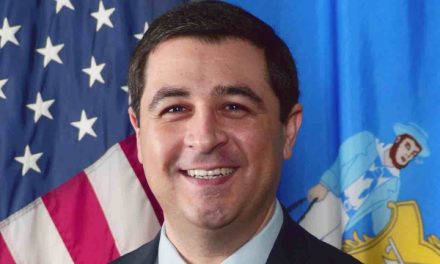
Evers declares public health emergency due to coronavirus

Evers declares public health emergency due to coronavirus
Gov. Tony Evers declared the new coronavirus a public health emergency Thursday, and his administration called on residents to cancel large events and avoid travel to states where there is community transmission.
The Department of Health Services confirmed seven positive cases in the state this week, including two in Dane County on Thursday. Both of the new cases had contact with a confirmed case reported earlier this week.
An additional case made a full recovery last month, bringing the total number of confirmed cases in Wisconsin to eight since the start of the outbreak.
The governor’s executive order declaring the public health emergency directs DHS to “take all necessary and appropriate measures to prevent and respond” to incidents of the disease.
DHS will serve as the lead agency during the emergency. It’ll be able to suspend any administrative rule that might hamper the state’s response.
The order also authorizes the activation of the Wisconsin National Guard as necessary and appropriate.
Evers said that the National Guard will be transporting home 37 Wisconsin residents who were onboard the Grand Princess cruise ship that docked in California Monday after several passengers tested positive for coronavirus.
“This declaration allows us to access state resources to deal with this pandemic head on,” Evers said at a Thursday press briefing at the state emergency operations center.
Evers said the risk to the majority of Wisconsinites remains low. His administration recommended a series of new steps aimed at preventing the continued spread of the virus.
That includes canceling events of 250 or more people and avoiding non-essential travel to any U.S. state where the Centers for Disease Control and Prevention has deemed there is “sustained community transmission.” As of Wednesday, that meant California, New York and Washington.
The administration also plans to provide new guidance for elderly people who are residing in nursing homes and other long-term care facilities.
“We understand these significant steps are going to disrupt people’s lives,” DHS Secretary-designee Andrea Palm said at the briefing. “But we are making these recommendations to protect the lives of the most vulnerable members of our families, our communities and our state.”
Evers stopped short of calling for the 2020 Democratic National Convention in Milwaukee to be canceled.
“That’s four months out,” he said. “I would not say we are planning on doing that. But as time goes on we will be in a better position to make that judgment.”
And he’s not requesting that all public schools in the state close after the University of Wisconsin-Madison and several other state universities decided this week to shift to online classes after spring break.
“Schools work in different ways,” he said. “Obviously, going forward they are going to work in a way that minimizes large groups of kids being together.”
Meanwhile, Palm said the state is so far keeping up with testing for the virus. But she expects that its capacity could be maxed out in the near future.
“We do anticipate that being the case fairly soon,” she said. “We are in close contact with [the federal government] and are asking for a refresh of our supplies for tests so that we can continue to be aggressive about testing for as long as we need to be.”
“We have leaned in on access to testing,” Palm added. “We think it’s an important part of knowing as early as possible where the disease is in Wisconsin so that we can move into action.”
The Wisconsin Department of Veterans Affairs on Thursday afternoon announced a ban on all medically unnecessary visits to residents of the state’s nursing homes for veterans in Chippewa Falls, King, and Union Grove, with some allowances for end-of-life cases.
Secretary Mary Kolar said there are no diagnosed cases of the new coronavirus at Wisconsin Veterans Homes and that her agency is following the recommendations of infection control experts.
The Wisconsin Elections Commission on Thursday directed municipal clerks to mail absentee ballots to nursing home and care facility residents rather than dispatching special voting deputies as they normally do.
They also gave clerks more flexibility to relocate polling locations at nursing homes and other facilities where public health is a concern.
In addition, Evers encouraged residents to vote early to minimize election day crowds.
April 7 is the spring election and presidential preference primary and May 12 is the special election in congressional district seven.
“The good news is that absentee voting in Wisconsin is really easy,” Evers said. “I’m encouraging everybody who can vote early to ensure that your vote is counted and your voice is heard to take advantage of that.”





